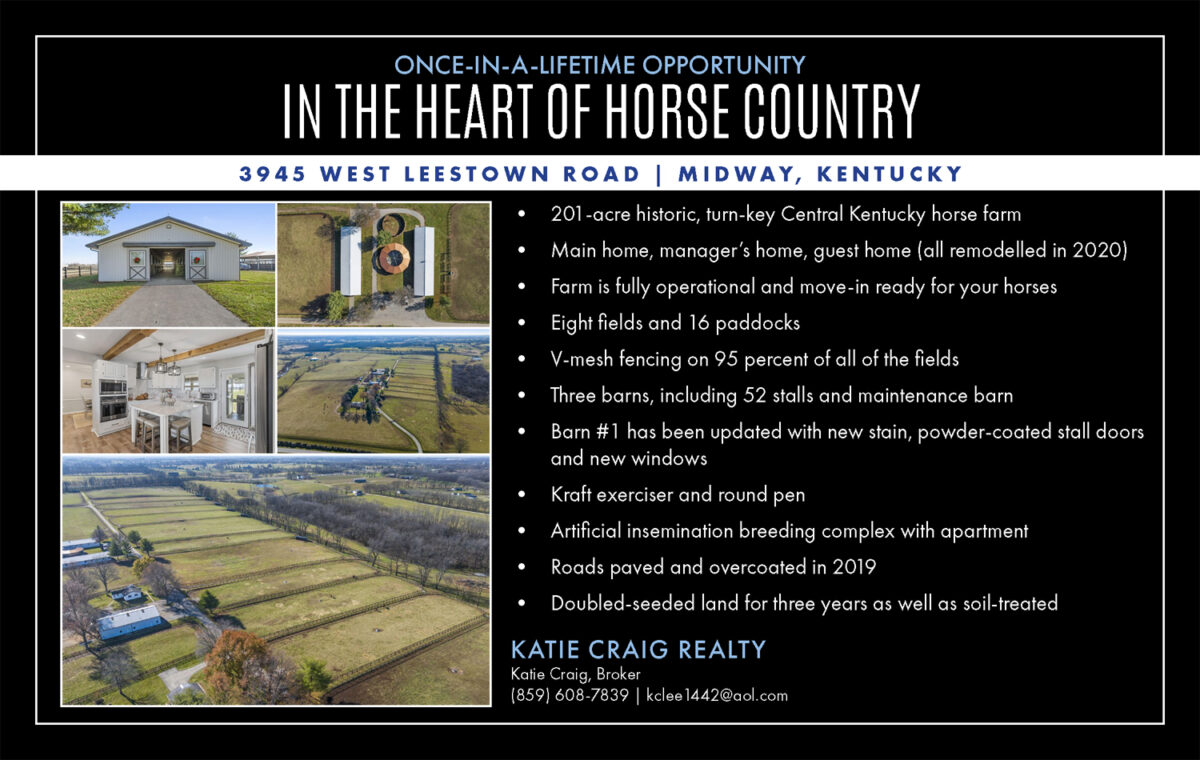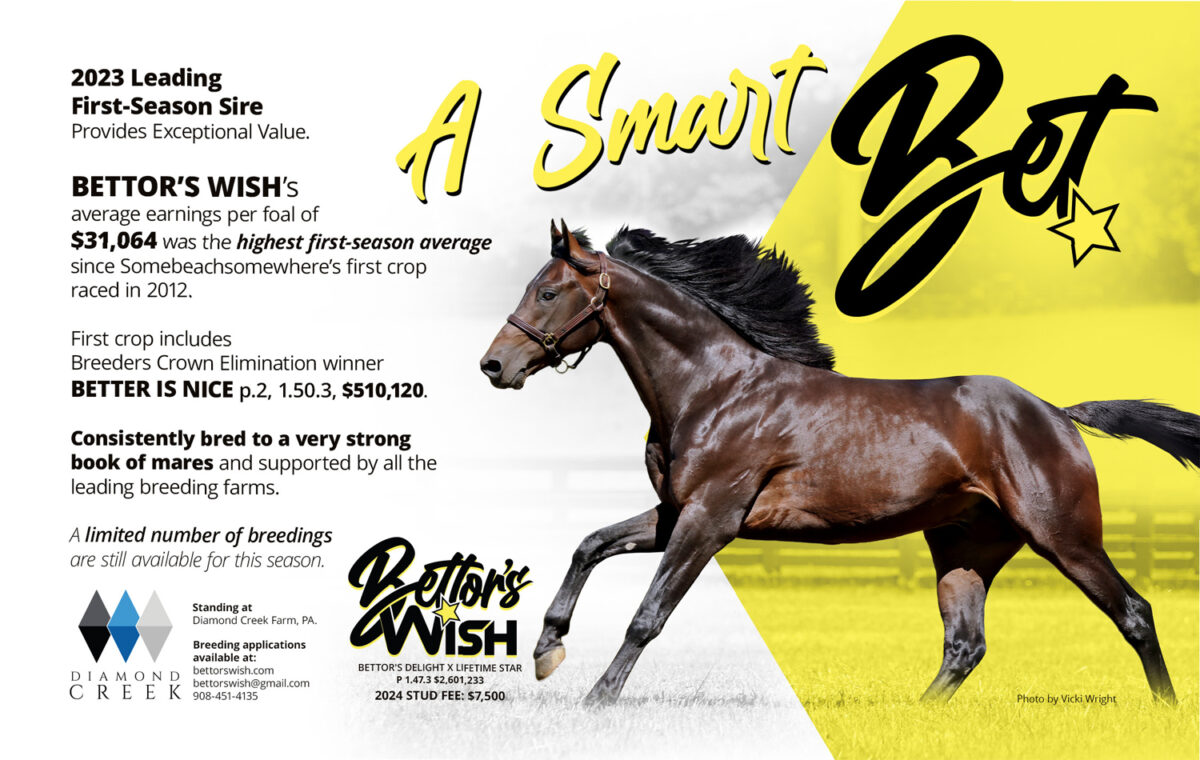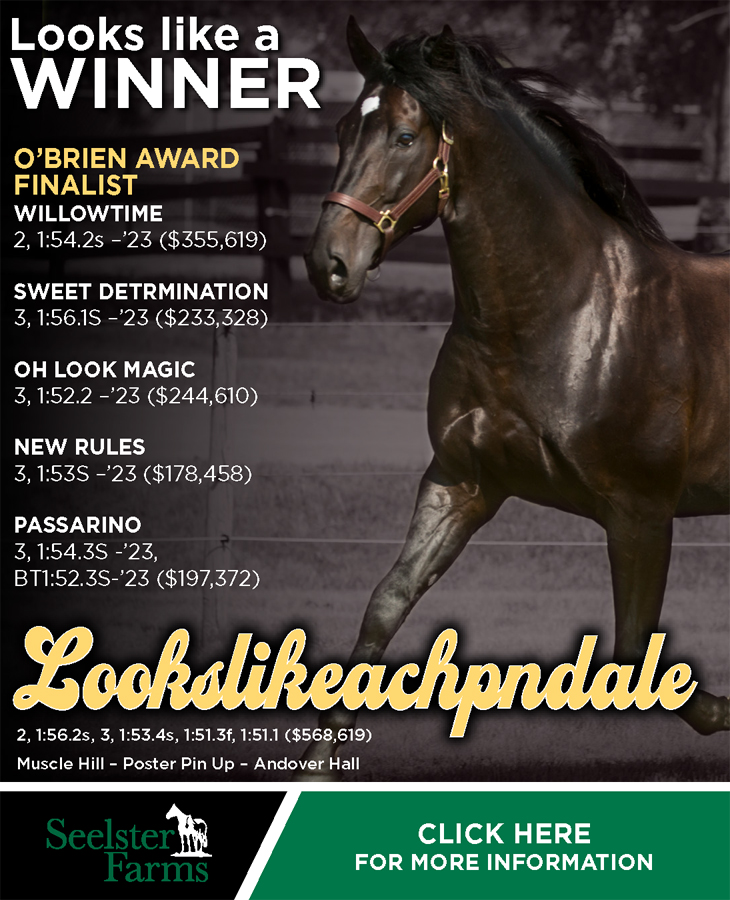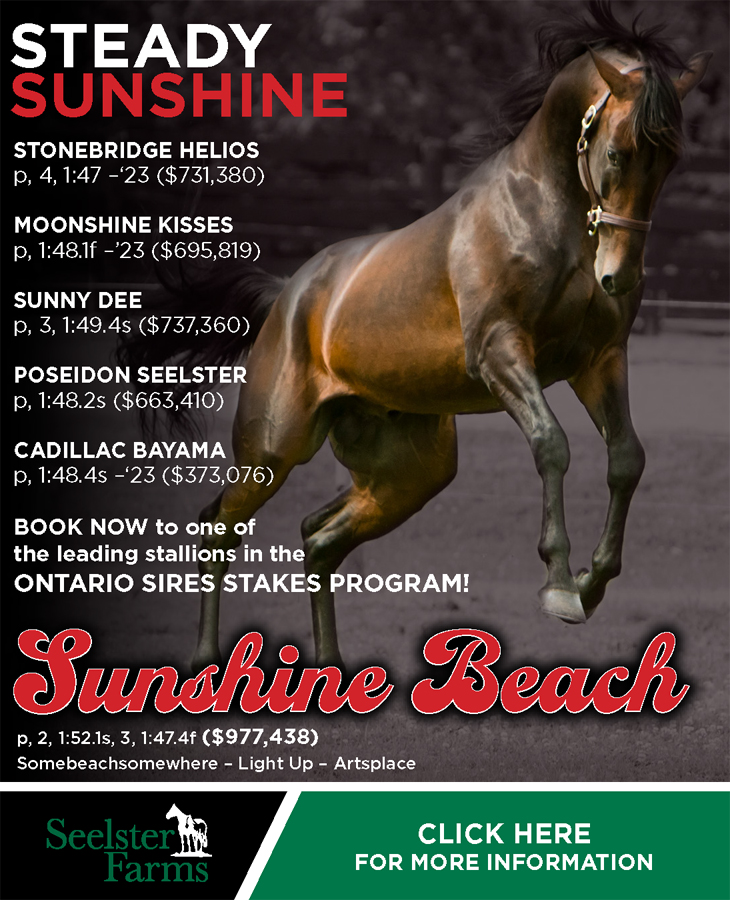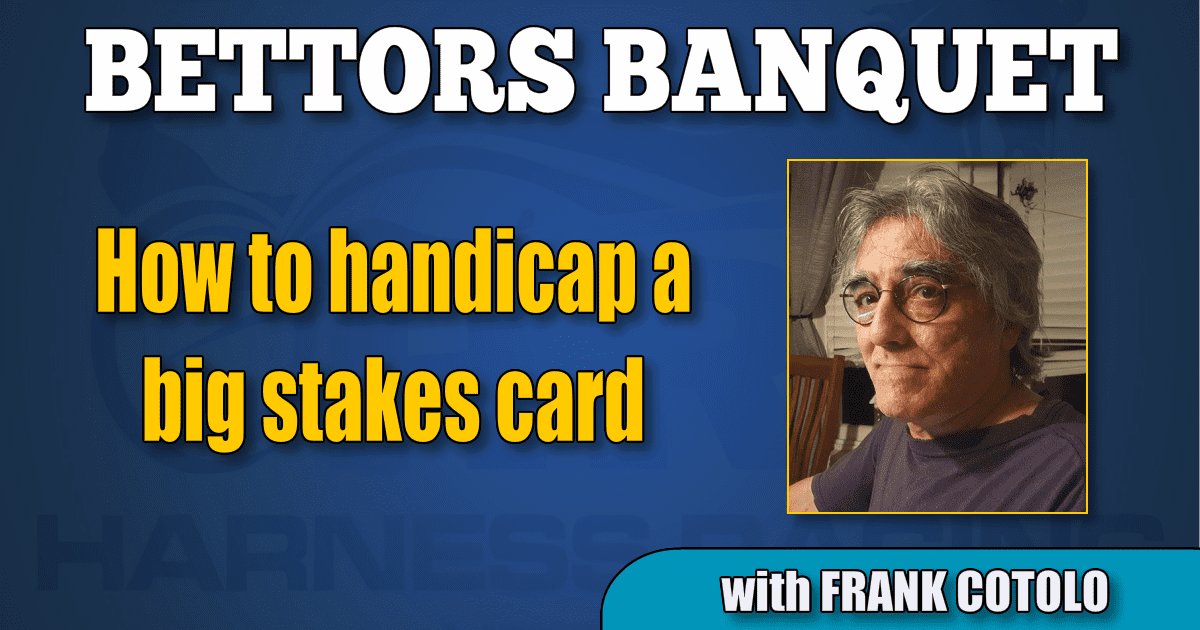

Assigning personal odds to prestige racing events; what’s your line on the North America Cup?
by Frank Cotolo
Talk about perfect timing? This Bettors Banquet (BB) installment comes at a pertinent instance — the North America Cup stakes program on June 15 at Woodbine/Mohawk. This program allows us to continue our focus upon writing a personal odds line (POL) by applying the process to the upper levels of harness racing.
Important points of relevance, in no particular order, are first noted.
Mathematics has no loyalty to class. That is, the computation of handicapping any race — using percentages-to-odds — does not change for any type of race. That goes for the $1 million Pepsi North America Cup and every level of racing event in between.
Accuracy pertains only to the process itself. That is, you have done the job correctly as long as your POL totals 100 per cent. How capable the POL may be to produce a profitable result is a circumstance the handicapper is incapable of building into the math involved.
There is no formula, equation or gimmick to assigning odds. A singular notion rules the math, and that is this: What are the chances (percentage within the border of 100) that each horse has to win the race? Each horse! Do not dismiss any participating contestant.
A reminder is also relevant: Do not think about betting the race at all when writing a POL.
Looking at June 15’s stakes events I have written a POL for the feature. It appears, along with some simple notes I made to explain the math I used. You may or may not agree with the odds that I assign to the horses. That is all right. I do not (and you should never) write a POL at the pleasure of another handicapper’s approval, because all other handicappers are enemies, so, I do not care what you to think about my POL, I just want to help you to write your own.
Here is my POL for the $1 million North America Cup. First, make note that the morning line for the race equals 141 per cent and I will cut 41 per cent from that assessment, which immediately allows my POL greater accuracy (because nothing can be, scientifically, more than 100 per cent). My odds are listed in ascending order.
Pepsi North America Cup
Horse | POL
Bettors Wish | 3-1
Captain Crunch | 4-1
Stag Party | 5-1
Workin Ona Mystery | 5-1
De Los Cielos Deo | 8-1
Aflame | 50-1
Best In Show | 50-1
Captain Victorious | 50-1
Hurrikane Emperor | 50-1
Tyga Hanover | 50-1
Abbreviated notes on my evaluation:
Bettors Wish is so good right now and may have beaten Captain Crunch even if the latter did not break; Captain Crunch, we know, is vulnerable; Stag Party cannot be dismissed for any reason; Workin Ona Mystery and De Los Cielos Deo face far tougher than in their elims; the rest need luck that cannot be predicted to win.
Do not ask me, “Who do you like?” My POL answers that question and it does so much more. Without concern about wagering on the event, my POL interprets my opinion with odds and it will guide me to or away from wagering.
The chances (percentages) I believe the horses in the field have to win translate into the prices I will demand for a win wager — and my demands will be respected or I will pass the race. That goes for the million-dollar race all the way down to the cheapest pari-mutuel event offered at any pari-mutuel track.
The decision to wager or not is made by comparing a POL to the public’s odds.
Look at my POL again. In order to make a win bet I demand $8 or more on my most-likely winner (Bettors Wish). I demand $10 or more on my second choice (Captain Crunch). I demand $12 or more on Stag Party and Workin Ona Mystery.
I will not bet any type of wager offered in the race if the public wagering does not meet my win-price demands. Without a valuable win wager — that is, the entry with public odds that equals or is larger than the odds I have assigned that horse, no other wager will be approached. A caveat to this rule is that I will never wager on a horse that I have assigned odds of 7-1 or higher (this and other wagering directions will be explained in money-management BB columns to come).
As for June 15’s program, every race is available for you to play — or not to play. Practice writing POLs for all of the races and compare your POL win-wager possibilities to how you ordinarily approach “handicapping” and wagering. Do that with all of the races on the June 15 program; value is available on most races you understand well enough to write a POL.
And always be sure of this: A win bet you cash at 5-1 on a million-dollar race pays about $12; a win bet you cash at 5-1 on the cheapest claiming race pays about $12.
… to be continued.






